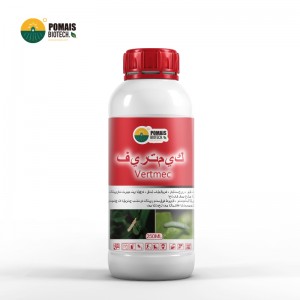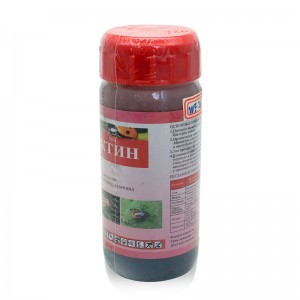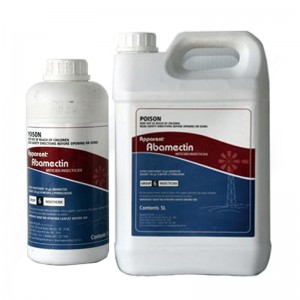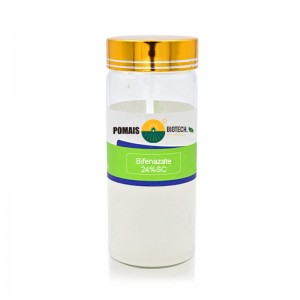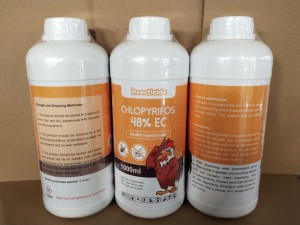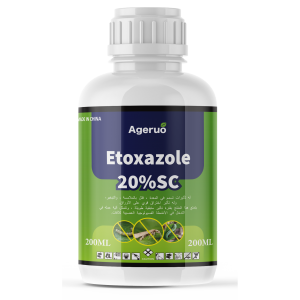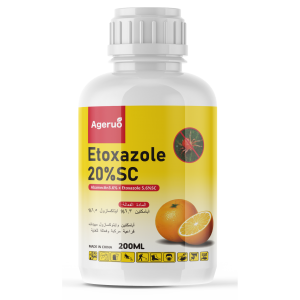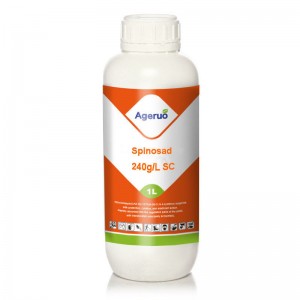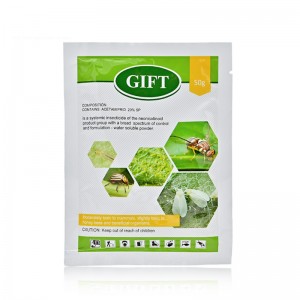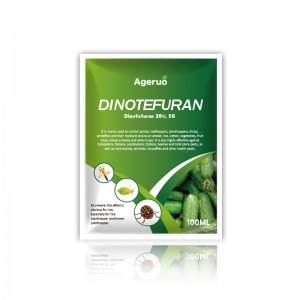Products
POMAIS Abamectin 1.8% EC | Miticide and Insecticide
Introduction
Abamectin is a type of macrocyclic lactone glycoside compound. It is an antibiotic insecticide with contact, stomach poison, and penetration effects on insects and mites, and also has a weak fumigation effect, with no systemic absorption. It has a long efficacy period. Its mechanism of action involves promoting the release of γ-aminobutyric acid from nerve terminals, hindering the transmission of insect nerve signals, causing paralysis and immobilization of pests, leading to death without feeding.
| Active ingredients | Abamectin |
| CAS Number | 71751-41-2 |
| Molecular Formula | C48H72O14(B1a).C47H70O14(B1b) |
| Classification | Insecticide |
| Brand Name | POMAIS |
| Shelf life | 2 Years |
| Purity | 1.8% EC |
| State | Liquid |
| Label | Customized |
| Formulations | 95%TC; 1.8% EC; 3.2% EC; 10%EC |
| The mixed formulation product | 1.Abamectin50g/L + Fluazinam500g/L SC
2.Abamectin15% +Abamectin10% SC 3.Abamectin-Aminomethyl 0.26% +Diflubenzuron 9.74% SC 4.Abamectin 3% + Etoxazole 15% SC 5.Abamectin10% + Acetamiprid 40%WDG 6.Abamectin 2% +Methoxyfenoide 8% SC 7.Abamectin 0.5% +Bacillus Thuringiensis 1.5%WP |
Advantage
It is safer and more environmental-friendly than organophosphorus.
It has high insecticidal activity and rapid medicinal effect.
Has a strong osmotic effect.
It is resistant to rain erosion and has a long lasting effect.
Package
The abamectin should be stored in a dry, cool, ventilated, and rainproof place, away from fire and heat sources. Keep it out of reach of children and lock it. Do not store or transport with food, beverages, grains, or feed.

Mode of Action
By inhibiting the motor nerve transmission of pests, abamectin 1.8% EC can quickly paralyze and resist food within a few hours, slow or motionless, and die within 24 hours. It is mainly stomach poison and touch killing, and has the function of transverse penetration, which can completely achieve the effect of positive beating and reverse death. It can be widely used in pollution-free fruits and vegetables.
Suitable crops:

Technical Requirements for Use:
For controlling the diamondback moth in cruciferous vegetables, it is recommended to apply the pesticide when the diamondback moth larvae are in the second instar stage. If there is a large infestation or multiple peaks, reapply the pesticide every 7 days.
For controlling the second-generation larvae of the rice stem borer, apply the pesticide during the peak period of egg hatching or the first instar larvae. In the field, there should be a water layer of more than 3 meters, and the water should be maintained for 5-7 days.
Avoid spraying on windy days or when rain is expected within one hour.
For controlling the diamondback moth in cruciferous vegetables, the pesticide can be applied up to 2 times per season, with a safety interval of 3 days for cabbage, 5 days for Chinese flowering cabbage, and 7 days for radishes. For controlling the second-generation larvae of the rice stem borer, the pesticide can be applied up to 2 times per season, with a safety interval of 14 days.

Using Method
|
Formulations |
Crop names |
Fungal diseases |
Dosage |
usage method |
|
1.8% EC |
Rice |
Cnaphalocrocis medinalis Guenee |
15-20g/mu |
spray |
|
Zingiber officinale Rosc |
Pyrausta nubilalis |
30-40ml/mu |
spray |
|
|
Brassica oleracea L. |
plutella xylostella |
35-40ml/mu |
spray |
|
|
3.2% EC |
Rice |
Cnaphalocrocis medinalis Guenee |
12-16ml/mu |
spray |
|
Zingiber officinale Rosc |
Pyrausta nubilalis |
17-22.5ml/mu |
spray |
|
|
Cotton |
Helicoverpa armigera |
50-16ml/mu |
spray |
|
|
10%SC |
Cotton |
Tetranychus cinnbarinus |
7-11ml/mu |
spray |
|
Rice |
Cnaphalocrocis medinalis Guenee |
4.5-6ml/mu |
spray |
Abamectin
Abamectin has stomach poison and contact-killing effects on mites and insects, but it does not kill eggs. The mechanism of action differs from conventional insecticides as it interferes with neurological activities, stimulating the release of γ-aminobutyric acid, which inhibits nerve conduction in arthropods.
Adult mites, larvae, and insect larvae exhibit paralysis symptoms and become inactive and cease feeding shortly after contact with Abamectin, with death occurring 2 to 4 days later. Due to its slow dehydration effects, Abamectin's lethal action is gradual.
Although Abamectin has a direct contact-killing effect on predatory insects and parasitic natural enemies, its minimal residual presence on plant surfaces minimizes damage to beneficial insects. Abamectin is adsorbed by soil and does not move, and it is decomposed by microorganisms, so it does not accumulate in the environment, making it suitable as a component of integrated pest management. It is easy to prepare, simply pour the formulation into water and stir before use, and it is relatively safe for crops.
Dilution Ratio of 1.8% Abamectin:
The dilution ratio of Abamectin varies depending on its concentration. For 1.8% Abamectin, the dilution ratio is approximately 1000 times, while for 3% Abamectin, it is approximately 1500-2000 times. Additionally, there are other concentrations available, such as 0.5%, 0.6%, 1%, 2%, 2.8%, and 5% Abamectin, each requiring specific adjustment of the dilution ratio according to its concentration. It is important to note that Abamectin should not be mixed with alkaline pesticides during use.
Precautions:
When using, comply with the "Regulations on the Safe Use of Pesticides" and pay attention to safety precautions. Wear a mask.
It is toxic to fish, silkworms, and bees. Avoid contaminating fish ponds, water sources, bee farms, silkworm sheds, mulberry orchards, and flowering plants during use. Dispose of used packaging properly and do not reuse it or discard it casually.
It is recommended to rotate the use of insecticides with different mechanisms of action.
Do not mix with alkaline pesticides or other substances.
First Aid Measures for Poisoning:
Symptoms of poisoning include dilated pupils, impaired movement, muscle tremors, and vomiting in severe cases.
For oral ingestion, induce vomiting immediately and administer syrup of ipecacuanha or ephedrine to the patient, but do not induce vomiting or administer anything to unconscious patients. Avoid using drugs that enhance the activity of γ-aminobutyric acid (such as barbiturates or pentobarbital) during rescue.
If accidentally inhaled, immediately move the patient to a well-ventilated area; if skin or eye contact occurs, immediately rinse with plenty of water for at least 15 minutes.
FAQ
Are you a factory?
We could supply insecticides, fungicides, herbicides, plant growth regulators etc. Not only we have our own manufacture factory ,but also have long-term cooperated factories.
Could you provide some free sample?
Most samples of less than 100g can be provided for free, but will add extra cost and shipping cost by courier.
Why Choose US
We supply varies of products with design,production,exporting and one stop service.
OEM production can be provided based on customers’ needs.
We cooperate with customers all over the world, ans provide pesticide registration support.

1.jpg)
1-300x300.jpg)
-300x300.jpg)
